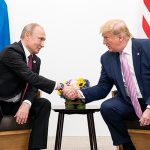The intersection of trust, governance, and accountability has taken center stage in modern political discourse, with Elon Musk’s role in reshaping federal institutions under President Donald Trump’s administration sparking intense debate. As head of the Department of Government Efficiency (DOGE), Musk has been granted unprecedented authority to audit and reform federal agencies, a move that reflects a growing public dissatisfaction with entrenched bureaucracies. This unorthodox approach raises critical questions about the balance of power in governance and the implications of relying on private-sector figures to address systemic inefficiencies.
Musk’s sweeping reforms, including efforts to dismantle agencies like USAID and scrutinize Treasury Department records, have drawn comparisons to the Progressive Era of the early 20th century. During that time, reformers sought to combat corruption and inefficiency in government while promoting accountability and transparency. However, unlike the grassroots-driven progressivism of figures like Robert M. La Follette, Musk’s initiatives represent a top-down approach led by a billionaire with significant private interests. This dynamic has sparked concerns about potential conflicts of interest and the erosion of traditional checks and balances.
The debate over Musk’s role also highlights broader frustrations with what many conservatives term “unelected bureaucrats.” Critics argue that career officials wield significant power without direct accountability to voters, undermining democratic principles. This sentiment echoes the Revolutionary-era distrust of centralized authority, as well as Progressive-era efforts to democratize governance through mechanisms like direct primaries and referendums. By positioning Musk as a disruptor of bureaucratic inertia, Trump’s administration has tapped into this historical vein of skepticism toward concentrated power.
However, the reliance on Musk raises important questions about the blurring lines between public interest and private enterprise. While his supporters tout his cost-cutting measures—reportedly saving billions in taxpayer dollars—detractors warn that his dual role as a government official and private businessman could lead to favoritism or self-enrichment. The lack of transparency surrounding DOGE’s operations has only fueled these concerns, with critics likening Musk’s unchecked influence to the monopolistic practices targeted by Progressive-era antitrust laws.
Ultimately, this unfolding narrative underscores the enduring tension between reform and accountability in American governance. Just as the Progressive Era grappled with balancing innovation and oversight, today’s political landscape faces similar challenges in navigating Musk’s unprecedented role. Whether his efforts lead to meaningful reform or exacerbate existing inequalities will depend on the vigilance of both elected officials and an engaged citizenry. As history has shown, trust in government is fragile, and safeguarding it requires constant scrutiny and active participation from all stakeholders.




